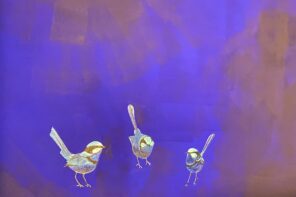Show Bookmarks
10 Habits of Happy Couples
The Myth of the Alcoholic Writer
Literary Abortion
10 Creative Ways to Declutter Your Home
Bitches Gotta Eat
Get Dumped? Good. Now, Pull Yourself Together!
Mom was Right: Clean Your Room
The Violence in Our Heads
Illinois Divorce Advice
Stupid Questions
Do you prefer things to be Interesting or Good?
Do you prefer to sleep: a. Alone? b. With a partner but not touching? c. Cuddling?
Interesting
The poet tells you that Sharon Olds is not an interesting poet. The poet said something similar years earlier; you were reading aloud from Jane Kenyon’s poem about depression, which moved you: High on Nardil and June light / I wake at four, /
(Not very interesting, the poet said.)
Book I Won’t Write
Chapter One: Marriage Therapy
Chapter Two: Life is about Losing Everything
Chapter Three: Okay, Stupid; or Moving On
Finally
You run into a childhood friend’s older sister. 45 years old, too thin, divorced. Old age itself—how Marguerite Duras described Betty Fernandez, also 45. When you were a girl, this woman taught you and your best friend, her sister, how to give a blow job. Guys like to come on your tits, she told the two of you. Put ice in your mouth, she instructed. Years later, you remember running into this friend’s mother. You remember her mother saying of your friend’s older sister, She got married. Finally.
Shopping List
House plants
Laser printer
Water filter
Air diffuser
Syllabus
“The Divorce Song” by Liz Phair
“Untouchable Face” by Ani DiFranco
Heartburn by Nora Ephron
In the Mood for Love by Wong Kar-Wai
Why Did I Ever by Mary Robison
Eternal Sunshine of the Spotless Mind by Charlie Kaufman
I Love Dick by Chris Kraus
Scenes from a Marriage by Ingmar Bergman
“The Glass Essay” by Anne Carson[1]
Book Club
The women hate the book. Why should I read about these losers? Joan declares. I don’t care about these people, she says. I don’t get it, Esther says. Did you get it? I don’t say anything, so they move on to gossip. Oh, I saw her at the symphony. They give you a check for 500 dollars. I saw her at the opera. She was drunk. You say something about unlikable female narrators. You say Flaubert identified with Emma. They don’t believe you and they definitely don’t believe Flaubert.
For Example (Memory)
At the wedding he toasted her & said that he was thinking of her (dead) mom & how he felt like he knew her (mom) & he missed her (mom) too even though he never knew her (mom) & that made everyone cry & she couldn’t believe someone loved her so much that he could love her loss, too.
Eggs
At the end of the movie, he convinces her to love him again and she says you will get sick of me and I’ll get bored and feel trapped and he says so what? And she says so? And then they decide to do it all over again because we need the eggs.
Advice
(You can break your heart open or closed.) Do not creep on his Facebook. (The point is not to feel better but to get better at feeling.) When you are in pain, learn something. (Only Art can hold that we are living and dying.)
Pause (Mary Ruefle)
If you take the time to peruse the annals of any nineteenth century asylum, as I have, you will discover that the “cause of admittance” for all women over forty is listed as “change of life.”
Grace Paley
Hello, my life, I said. We had once been married for twenty-seven years, so I felt justified. He said, What? What life? No life of mine. I said, O.K. I don’t argue when there’s real disagreement.
What Women Talk About
I was one and done. I knew I’d have just one, so I was so happy when I found out I was having a boy.
Oh, see I wanted a girl.
No, I couldn’t do that! I mean, girls—they are evil!
It’s Not Enough to Unfriend
Nathan and I at St. Mark’s Poetry Project—Eileen Myles is talking about how to have an ex on Facebook: “It’s not enough to unfriend. You have to block them.” But what if you block them, or they block you, but someone else posts pictures of your ex with his new girlfriend? And Eileen says, “Oh, pictures. Fuck. Well, the only way to respond to that is with MORE pictures.”
The End (Wound)
A friend says: “You have to de-cathect him.” It is good advice. My problem, I explain, is that cathecting begins with disappearance. The melancholic loses the lover while he is already there (Kristeva).
[1] “Everything I know about love and its necessities / I learned in that one moment / when I found myself / thrusting my little burning red backside like a baboon / at a man who no longer cherished me.”
Suzanne Scanlon is the author of two books, Promising Young Women (Dorothy, a publishing project, 2012) and Her 37th Year, An Index (Noemi Press, 2015). Committed, a memoir about women, reading, and mental illness, is forthcoming from Vintage/Anchor Books.




